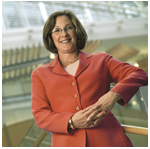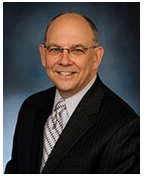Online Course
NURS 787 - Theoretical Foundations of Teaching and Learning
Module 1: Introduction to Teaching and Learning
Source: https://www.timeshighereducation.com
What is a Teacher?
There are as many answers to this question as there are teachers and learners! While dictionary definitions converge on some phrase indicating that a teacher is one who teaches, it is a very narrow perspective. Some people prepare themselves to teach specific content – history, physics, English literature, pharmacology, for example. Often such preparation is aimed at learners of a specific age group or developmental level. For the “traditional” teacher, extensive preparation is required in various aspects of teaching as well as in a specific content area.
In health professions, teachers are first and foremost prepared within their discipline: nursing, medicine, pharmacy, dentistry, etc. This extensive preparation for a clinical role usually contains little, if any, formal preparation for how to teach as teaching may be but just one activity in which health professionals engage. Excellent teachers emerge. Here are some thoughts from highly regarded teachers in health professions at the University of Maryland Baltimore campus:
“I see my role as a teacher as the person responsible for setting the "course" of learning and the learning environment however, each individual learner may use and apply this knowledge differently. And, it is the role of teacher to assess and provide feedback to enhance the learning process ultimately coaching each student to achieve course objectives."
Diane DePanfilis, Ph.D., MSW
Dr. Diane DePanfilis, PhD, MSW
Professor and Director
Ruth H. Young Center for Families and Children
University of Maryland School of Social Work

"Teacher has a variety of definitions (as does teaching) and all too often we don't appreciate this range of meaning. In some cases, a teacher may be a mentor or guide, close at hand, with one or just a couple of students. At other times, the teacher functions as an expert with the express purpose of imparting information or skills in a manner designed to maximize information transfer by selecting the most important data for understanding. In still others a teacher may be an evaluator pointing out errors or rewarding good work. At times, we learn a great deal from negative examples and these constitute a form of "teaching".
David B. Mallott, MD
Associate Dean for Medical Education
University of Maryland School of Medicine

As one can see a different type of teaching goes along with each (and there are no doubt more) variation in the meaning of teacher. One could say that teacher is more appropriately defined in terms of setting and student. A teacher in a lecture and whiteboard with 100 people looking on is changing the way the students are thinking. An on-line teacher subtly shaping the way a student understands a difficult concept or a clinical instructor making adjustment to an student’s patient assignment is doing much the same but in quite a different way. Ultimately, to have a successful teacher-student interaction, the teacher must have changed the knowledge, skills, or attitudes (KSAs) of the student or students in an intended direction and toward an established goal.
The University of California at Berkeley's Center for Teaching and Learning provides a variety of online publications and tip sheets about teaching and teachers.
- See the criteria and winners of their 2023 Distinguished Teaching Award Recipients
The Colorado Department of Education provides a vision of great teaching. This document highlights their expectations of teachers via six Quality Standards with numerous elements under each.

Reflection Activity:
Think about the critical attributes of what is said about teachers and teaching. Has your perception of “good teaching” been changed?
